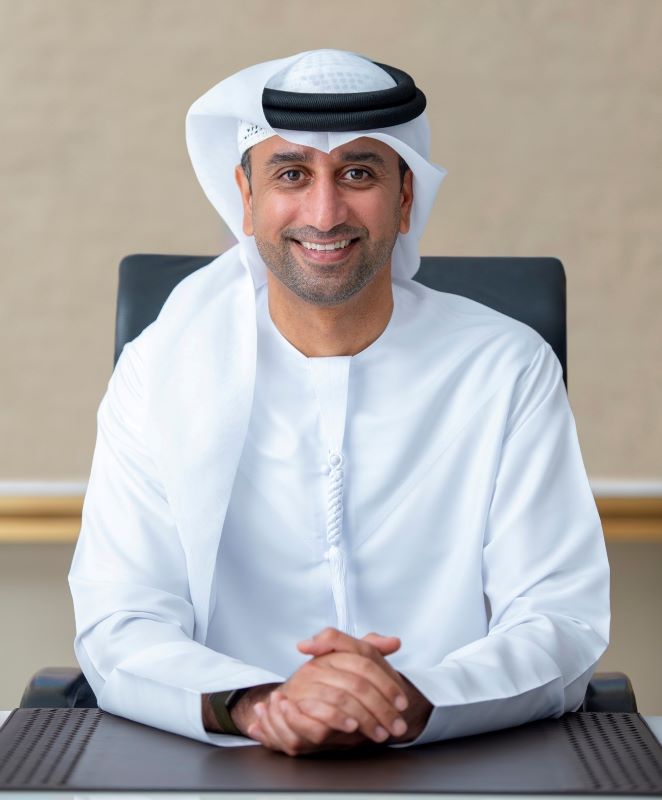Inspired by strategic roadmaps and a clear vision for social advancement and economic sustainability, the UAE has emerged as an ambitious nation and, arguably, the most aspirational worldwide.
This was most recently reaffirmed by the ‘Principles of the 50’ announcement, which represents the inception of a new political, economic and societal development era over the next five decades. And with widespread reform being pursued and the endless potential of Emirati society explored, the future-focused leadership now challenges people not only to think differently, but also bigger and better to propel the country and its people to greater heights.
While the population has enthusiastically embraced this approach, the coming period represents an entirely new developmental stage at the national level, one that requires harnessing the capabilities of, perhaps, the most powerful tool available today on an unprecedented scale: Technology.
National technology outlook
Already, the foundations for such action have been laid, positioning the nation to continue integrating technology and ultimately surpass development objectives. The UAE’s Fourth Industrial Revolution (4IR) Strategy and Ministry for Artificial Intelligence are two embodiments of an unrelenting determination to translate national ambitions to realisations, and both have helped drive the UAE’s ascendancy from an inspiring innovative power to a robust jurisdiction for global technological advances.
Science, technology and innovation-related initiatives exceeding AED300 billion contributed to the UAE ranking first in the Arab region in the 2020 Global Innovation Index, while the IMD World Digital Competitiveness Ranking 2019 report ranked the country second and ninth globally in the technology and future readiness factors, respectively.
The UAE has evidently made remarkable progress to this point, yet successfully meeting national priorities in line with Vision 2021 is just one chapter in long-term evolution. As the National Agenda progresses, attentions remain firmly fixed on various priorities where technology can drive immeasurable impacts as per the UAE Centennial Plan 2071 – raising national economic productivity, fortifying the country’s reputation, enhancing industries, focusing on technological advancements.
Scenarios set to materialise
As the UAE looks ahead and embarks on driving such national aspirations, technology and technological infrastructure represent a combination crucial for sustained progress and eventual success. From a technology viewpoint, artificial intelligence (AI), machine learning (ML) and robotics are among those destined to drive projects with minimal human intervention and greater creativity and accuracy.
In terms of infrastructure, data centres and 5G will play a fundamental role in furthering digital transformation acceleration and ensuring collective national ambitions come to fruition, supporting and centralising organisational and industrial processes with groundbreaking capacity and connectivity.
These scenarios implicate every sector, and widespread technology investments will be vital in realising objectives that align with the UAE’s vision for the future. By 2024, the country is projected to spend $23bn on information and communication technologies (ICT) and, considering this anticipated level of investment, the UAE’s standing as a regional and international hub for the world’s leading technology brands will only improve. National GDP growth will be positively impacted as a result, elevating both economic productivity and the country’s reputation in the process.
The influence and importance of telecommunications in meeting aspirations will also become even more significant at the national level. In the UAE, the sector is expected to register a compound annual growth rate (CAGR) of 3.5 percent through 2025, driven in part by the expansion of end-user industry applications and sustained growth in emerging technology markets, including 5G, cloud computing, and the internet of things (IoT). These technologies will play a pivotal role in Emirati society in the decades ahead, with the telecommunications sector facilitating unprecedented adoption and implementation.
Telecom providers will continue their 5G rollouts and network enhancements to deliver lower latency, greater transmission speeds and reimagine customer experiences. They will also invest in cloud computing infrastructure to provide cloud-based solutions, streamline processes, and lower operating costs for business. Moreover, increased IoT deployments will ensure providers deliver greater means of communication between devices, residents, and businesses, as well as boost business efficiencies and revenues.
Data centres offer the possibilities – scalability, security, efficiency and state-of-the-art technology – that are increasingly demanded by companies and organisations, but are too expensive to realise themselves. Du plans to open two new data centres in Dubai Silicon Oasis and Khalifa Industrial Zone Abu Dhabi. The new facilities will bring the total number of Du’s data centres to 12 – further solidifying the telco’s commitment to supporting the UAE government and financial organisations “seeking to outsource their data centre requirements” through a managed service provider.
Technology the key to unlocking ambition
From enhancing industries to fostering technology advancements, building sustainable infrastructure to ensuring a cohesive society, the above benefits will collectively underscore the vitality of technology to the UAE in due course.
With the continuous deployment of emerging technologies and subsequent implementation with robust infrastructure on a mass scale, the telecommunications sector will channel tech capabilities to unlock vast potential and support the UAE in realising long-term aspirations.





